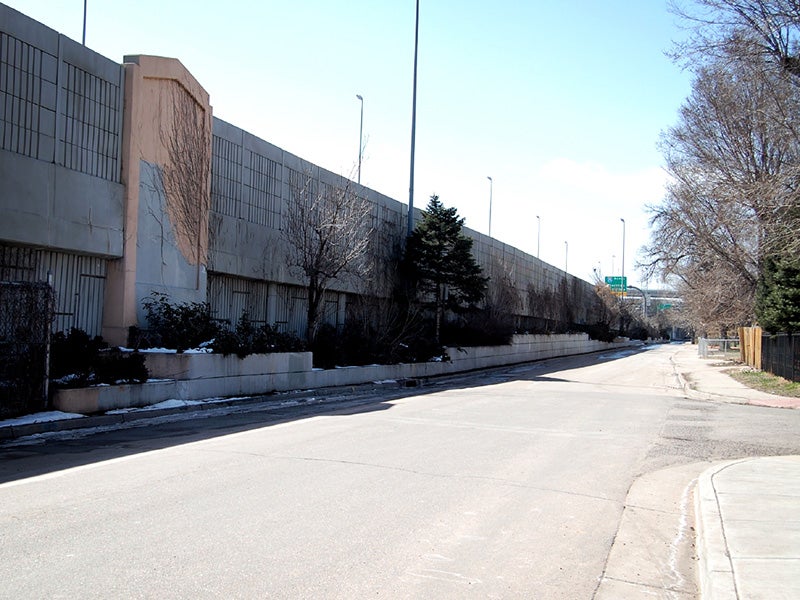U.S Department of Transportation to Open Civil Rights Investigation on I-70 Plan
Environmental, social and economic impacts disparately affect longstanding Latino neighborhoods
Contact
The U.S. Department of Transportation’s Office of Civil Rights has announced that it will initiate an investigation of civil rights violations related to the Colorado Department of Transportation’s (CDOT) proposal to expand I-70 through the Globeville and Elyria-Swansea neighborhoods in North Denver.
Better, less discriminatory alternatives exist, including rerouting the highway along I-270 and I-76, which would only add a few miles to the trip through Denver.
The decision responds to a complaint, filed Nov. 15 by Earthjustice on behalf of the Colorado Latino Forum, Cross Community Coalition, and Elyria and Swansea Neighborhood Association, alleging that the plan to triple I-70’s width will result in “disparate and severe environmental and economic impacts” on the predominantly Latino communities.
CDOT committed to moving forward with the expansion plan in May, although it has yet to issue its formal Record of Decision. The agency, which receives federal funds for this and other projects, is prohibited by the Civil Rights Act of 1964 from taking actions that have even an unintentional discriminatory impact on citizens on the basis of their race, color, or national origin.
What You Need To Know About Title VI of the Civil Rights Act of 1964
“We are looking forward to making the case that CDOT’s proposal magnifies the already discriminatory impact that I-70 has had on these neighborhoods for decades, leading to reduced life expectancies and the highest rates of pollution-related illnesses in the city,” said Heidi McIntosh, an attorney at Earthjustice who represents the neighborhood advocates.
Interstate 70 was built through the area in the 1960s over the strenuous objections of neighborhood organizations and business owners. Fifty years later, the neighborhood is the most polluted in Colorado. Residents have significantly higher rates of cancer, cardiovascular disease, asthma and asthma-related emergency room visits than the rest of Denver.
Data provided by Community Planning & Div. Map data © Google.
The Denver neighborhoods of Elyria-Swansea and Globeville have for decades suffered a disproportionate share of the city’s environmental, social and economic impacts. View map of Denver neighborhoods
The expansion of I-70 to triple its size, adding toll lanes and eliminating access to the highway from the neighborhood, would worsen environmental and health consequences for this community. It would result in increased exposure to freeway-related air pollution and expose residents to airborne dust from existing Superfund sites that are contaminated by lead and arsenic.
It also would increase the disruption to the social fabric of the neighborhood and its economic vitality by destroying at least 56 homes, 13 commercial buildings and the Swansea Elementary School playground. Approximately 200 people will be displaced by the expansion.

Additional Resources
About Earthjustice
Earthjustice is the premier nonprofit environmental law organization. We wield the power of law and the strength of partnership to protect people's health, to preserve magnificent places and wildlife, to advance clean energy, and to combat climate change. We are here because the earth needs a good lawyer.